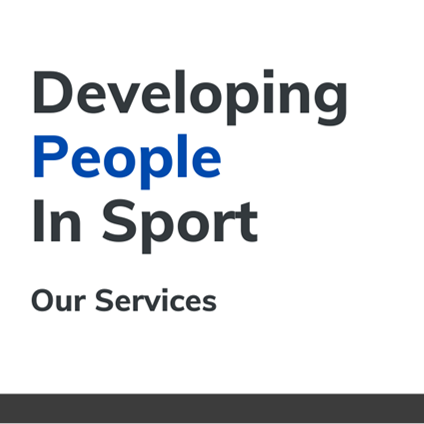People, people everywhere. But what does the word ‘people’ mean?
The drive, rightly, for funded organisations to develop people plans appears to be developing like Heinz baked beans i.e., 57 varieties.
They appear to range from; large complex internal plans linked to a vision and mission, to coach development plans.
However, putting the plan in place may be the easy thing. The Implementation of plans is a challenge as this has to support both the paid and volunteer workforce. In addition, people plans should be looking where people should be and this may be fundamentally looking at the delivery element of the plans.
Some key questions:
- Are the plans led by the funding available, or the needs of the people?
- How can a clear plan be put in place for:
- Basic core understanding: Health and safety, Data management, Safeguarding and EDI
- Core skills and knowledge of the different levels of the business
- Coach pathway in talent and participation
- Volunteers to support the pathway
- Volunteers to officiate the pathway.
A plan to ensure that the pathway for volunteers and staff is safe and enjoyable but it seems some are racing to get people plans in place without looking fundamentally at the pathway for:
- Professional staff
- Coaches
- Volunteers in the organisation and running clubs or sub-national organisations
- Volunteers who officiate the sport.
The barrier should not be we can’t do this as its costs, or we don’t want to impose training on people as they are volunteering.
The advantages of training are clear:
They lock people into the organisation as they feel valued, people stay in roles longer and apply this knowledge in their workplace and gain confidence in doing so.
Some other drivers can help with this process. consideration of rewarding training attendance. a “badged” system that shows a clear pathway to gaining relevant vocational knowledge can also act as a motivator. No longer can we expect people to just turn up. People value training, support, and communication.
People plans should consider how to effectively communicate with communities of practice. This may be different from the monthly newsletter but might be a WhatsApp group or community network of people in similar roles.
We have now been delivering training for over 18 years and in that time, we have seen some great outcomes. From Club Matters volunteers gaining initial knowledge or an understanding that they’re doing the right thing is great to be part of.
We are currently running at 86% Distinction for our Level 5 Management and Leadership Apprenticeship and this we put down to making sure the project they work on is completely relevant to their work and the learner can gain from the experience.
Training is vital to keep people engaged and feeling valued and we should never apologise for offering training, because at the end of the day, the participant gets a better experience, and this must be the overall goal.
Related Services

Find out more about Developing People in Sport!

